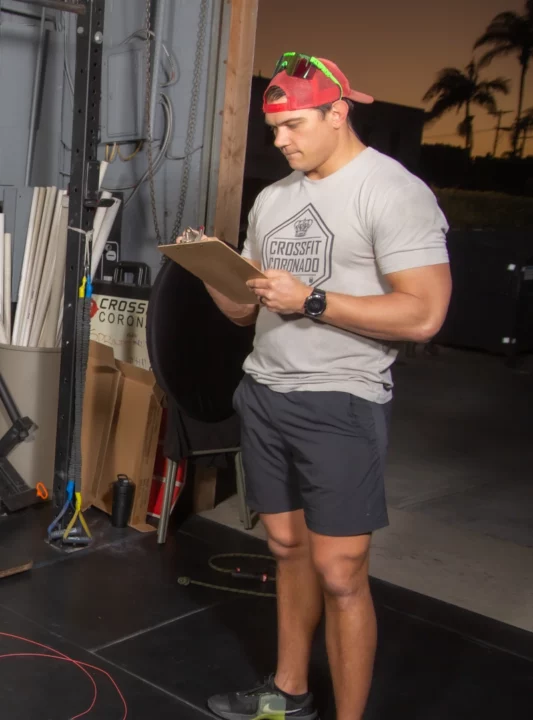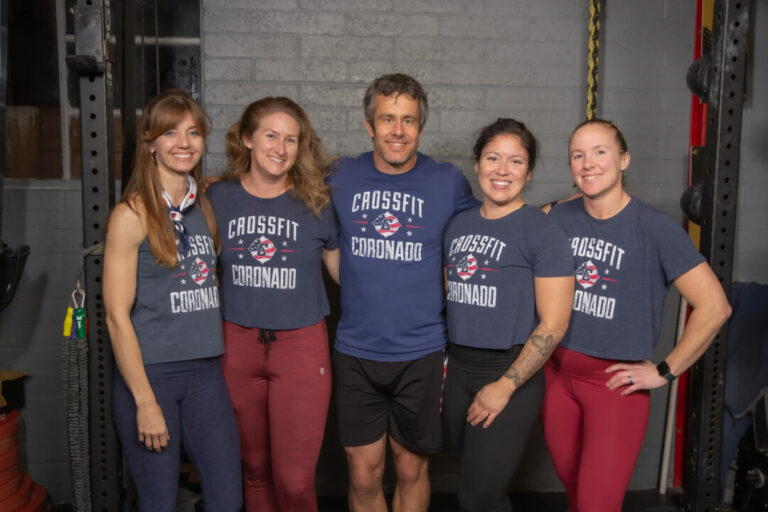 Fat was once the devil. Now more nutritionists are pointing accusingly at sugar and refined grains.
Fat was once the devil. Now more nutritionists are pointing accusingly at sugar and refined grains.
By Marni Jameson, Special to the Los Angeles Times
December 20, 2010
Most people can count calories. Many have a clue about where fat lurks in their diets. However, fewer give carbohydrates much thought, or know why they should.
But a growing number of top nutritional scientists blame excessive carbohydrates — not fat — for America's ills. They say cutting carbohydrates is the key to reversing obesity, heart disease, Type 2 diabetes and hypertension.
"Fat is not the problem," says Dr. Walter Willett, chairman of the department of nutrition at the Harvard School of Public Health. "If Americans could eliminate sugary beverages, potatoes, white bread, pasta, white rice and sugary snacks, we would wipe out almost all the problems we have with weight and diabetes and other metabolic diseases."
It's a confusing message. For years we've been fed the line that eating fat would make us fat and lead to chronic illnesses. "Dietary fat used to be public enemy No. 1," says Dr. Edward Saltzman, associate professor of nutrition and medicine at Tufts University. "Now a growing and convincing body of science is pointing the finger at carbs, especially those containing refined flour and sugar."
Americans, on average, eat 250 to 300 grams of carbs a day, accounting for about 55% of their caloric intake. The most conservative recommendations say they should eat half that amount. Consumption of carbohydrates has increased over the years with the help of a 30-year-old, government-mandated message to cut fat.
And the nation's levels of obesity, Type 2 diabetes and heart disease have risen. "The country's big low-fat message backfired," says Dr. Frank Hu, professor of nutrition and epidemiology at the Harvard School of Public Health. "The overemphasis on reducing fat caused the consumption of carbohydrates and sugar in our diets to soar. That shift may be linked to the biggest health problems in America today."
To understand what's behind the upheaval takes some basic understanding of food and metabolism.
All carbohydrates (a category including sugars) convert to sugar in the blood, and the more refined the carbs are, the quicker the conversion goes. When you eat a glazed doughnut or a serving of mashed potatoes, it turns into blood sugar very quickly. To manage the blood sugar, the pancreas produces insulin, which moves sugar into cells, where it's stored as fuel in the form of glycogen.
If you have a perfectly healthy metabolism, the system works beautifully, says Dr. Stephen Phinney, a nutritional biochemist and an emeritus professor of UC Davis who has studied carbohydrates for 30 years. "However, over time, as our bodies get tired of processing high loads of carbs, which evolution didn't prepare us for … how the body responds to insulin can change," he says.
When cells become more resistant to those insulin instructions, the pancreas needs to make more insulin to push the same amount of glucose into cells. As people become insulin resistant, carbs become a bigger challenge for the body. When the pancreas gets exhausted and can't produce enough insulin to keep up with the glucose in the blood, diabetes develops.
The first sign of insulin resistance is a condition called metabolic syndrome — a red flag that diabetes, and possibly heart disease, is just around the corner. People are said to have the syndrome when they have three or more of the following: high blood triglycerides (more than 150 mg); high blood pressure (over 135/85); central obesity (a waist circumference in men of more than 40 inches and in women, more than 35 inches); low HDL cholesterol (under 40 in men, under 50 in women); or elevated fasting glucose.
About one-fourth of adults has three or more of these symptoms.
"Put these people on a low-carb diet and they'll not only lose weight, which always helps these conditions, but their blood levels will improve," Phinney says. In a 12-week study published in 2008, Phinney and his colleagues put 40 overweight or obese men and women with metabolic syndrome on a 1,500-calorie diet. Half went on a low-fat, high-carb diet. The others went on a low-carb, high-fat diet. The low-fat group consumed 12 grams of saturated fat a day out of a total of 40 grams of fat, while the low-carb group ate 36 grams of saturated fat a day — three times more — out of a total of 100 grams of fat.
Despite all the extra saturated fat the low-carb group was getting, at the end of the 12 weeks, levels of triglycerides (which are risk factors for heart disease) had dropped by 50% in this group. Levels of good HDL cholesterol increased by 15%.
In the low-fat, high-carb group, triglycerides dropped only 20% and there was no change in HDL.
The take-home message from this study and others like it is that — contrary to what many expect — dietary fat intake is not directly related to blood fat. Rather, the amount of carbohydrates in the diet appears to be a potent contributor.
"The good news," adds Willett, "is that based on what we know, almost everyone can avoid Type 2 diabetes. Avoiding unhealthy carbohydrates is an important part of that solution." For those who are newly diagnosed, he adds, a low-carb diet can take the load off the pancreas before it gets too damaged and improve the condition — reducing or averting the need for insulin or other diabetes meds.
Americans can also blame high-carb diets for why the population has gotten fatter over the last 30 years, says Phinney, who is co-author of "The New Atkins for a New You" (Simon & Schuster, 2010).
"Carbohydrates are a metabolic bully," Phinney says. "They cut in front of fat as a fuel source and insist on being burned first. What isn't burned gets stored as fat, and doesn't come out of storage as long as carbs are available. And in the average American diet, they always are."
Here's how Phinney explains it: When you cut carbs, your body first uses available glycogen as fuel. When that's gone, the body turns to fat and the pancreas gets a break. Blood sugar stabilizes, insulin levels drop, fat burns. That's why the diet works for diabetics and for weight loss.
When the body switches to burning fat instead of glycogen, it goes into a process called nutritional ketosis. If a person eats 50 or fewer grams of carbs, his body will go there, Phinney says. (Nutritional ketosis isn't to be confused with ketoacidosis, a dangerous condition that can occur in diabetics.)
Beyond the fat-burning effects of ketosis, people lose weight on low-carb diets because fat and protein increase satisfaction and reduce appetite. On the flip side, simple carbs cause an insulin surge, which triggers a blood sugar drop, which makes you hungry again.
"At my obesity clinic, my default diet for treating obesity, Type 2 diabetes and metabolic syndrome is a low-carb diet," says Dr. Eric Westman, director of the Lifestyle Medicine Clinic at Duke University Medical Center, and co-author of the new Atkins book. "If you take carbohydrates away, all these things get better."
Though the movement to cap carbs is growing, not all nutritional scientists have fully embraced it. Dr. Ronald Krauss, senior scientist at Children's Hospital Oakland Research Institute and founder and past chair of the American Heart Assn.'s Council on Nutrition, Physical Activity and Metabolism, says that while he fundamentally agrees with those advocating fewer dietary carbs, he doesn't like to demonize one food group.
That said, he adds, those who eat too many calories tend to overconsume carbohydrates, particularly refined carbohydrates and sugars. "It can be extremely valuable to limit carbohydrate intake and substitute protein and fat. I am glad to see so many people in the medical community getting on board. But in general I don't recommend extreme dietary measures for promoting health."
Joanne Slavin, professor of nutrition at the University of Minnesota and a member of the advisory committee for the 2010 Dietary Guidelines for Americans, is less inclined to support the movement. The committee, she says, "looked at carbohydrates and health outcomes and did not find a relationship between carbohydrate intake and increased disease risk."
Most Americans need to reduce calories and increase activity, Slavin adds. Cutting down on carbs as a calorie source is a good strategy, "but making a hit list of carbohydrate-containing foods is shortsighted and doomed to fail, similar to the low-fat rules that started in the 1980s."
As nutrition scientists try to find the ideal for the future, others look to history and evolution for answers. One way to put our diet in perspective is to imagine the face of a clock with 24 hours on it. Each hour represents 100,000 years that humans have been on the Earth.
On this clock, the advent of agriculture and refined grains would have appeared at about 11:54 p.m. (23 hours and 54 minutes into the day). Before that, humans were hunters and gatherers, eating animals and plants off the land. Agriculture allowed for the mass production of crops such as wheat and corn, and refineries transformed whole grains into refined flour and created processed sugar.
Some, like Phinney, would argue that we haven't evolved to adapt to a diet of refined foods and mass agriculture — and that maybe we shouldn't try.
http://www.latimes.com/health/la-he-carbs-20101220,0,5893431,full.story












Great post! Never knew that carb is the real problem. I honestly do not know if I can give up bread, pasta or white rice. Let me try a low-carb diet and let’s see what happens. Thanks a lot!